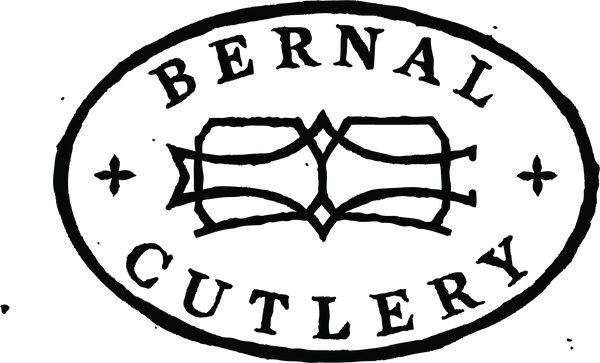-
Currency
-
NEW
- All New Products
- New Kitchen Knives
- New Kitchen Tools
- Latest Vintage
- New Outdoor & Utility
- New Pantry
-
What's in my Basket Series
- Ryo Sakai -Kuma Sushi
- Ian McNemar - Woodworker, Instructor
- Anna Voloshyna - Author
- Jorge Martinex Lillard - Lolo´
- Chris Yang - Piglet & Co
- Griffin Wilson - @cabincorn
- Gabe Rudolph - Gestura Utensils
- Marc Schechter - Square Pie Guys
- Molly DeCoudreaux - Food Photographer
- Geoff Davis - Burdell Soul Food
- Jen and Wes - @crazythickasians
- Josh Donald - Bernal Cutlery
- Kelly Kozak - Bernal Cutlery
- Jessica Sullivan - Poppy SF
- Sylvan Mishima Brackett - Rintaro
- Michael Myers - Film Character
- Ali Hooke - @alihooke
- Bruce Hill - The Chef's Press
- Dylan Carasco - Butcher's Guide
- Spencer Horowitz - Hadeem
-
Japanese Knives
- Ashi Hamono
- Gihei Knives
- Godo Tadaharu
- Hado
- Hatsukokoro
- Hitohira
- Jiro Nakagawa
- Iwasaki Kamisori
- Kaji-Bei
- Kamo Shiro
- Kanehide
- Konosuke
- MAC Knife
- Masakane
- Makoto Tadokoro Marushin
- Mizuno Axes
- Morihei
- Myojin Riki Sesakusho
- Nakagawa Hamono
- Naozumi
- Nigara Hamono
- Sakai Kikumori
- Shigefusa
- Tagai
- Takada no Hamono
- Tanabe Tatara
- Yoshikazu Tanaka
- Tosa
- Tsukasa Hinoura
- Yoshikane
- Wakui
-
Global Knives
- Allday Goods (GBR)
- A Wright & Son (GBR)
- Blenheim Forge (GBR)
- J Adams (GBR)
- John Nowill & Son (GBR)
- Wood Tools (GBR)
- Au Sabot (FRA)
- Chazeau Honoré (FRA)
- Fontenille Pataud (FRA)
- K Sabatier (FRA)
- David Margrita (FRA)
- Opinel (FRA)
- Eichenlaub Tableware (DEU)
- Friedr Herder (DEU)
- Windmühlenmesser (DEU)
- Florentine Kitchen Knives (ESP)
- Pallares (ESP)
- Helle (NOR)
- Andersson & Copra (SWE)
- Hults Bruks Axes (SWE)
- Kalthoff Axes (SWE)
- Morakniv (SWE)
- Iisakki Jarvenpaa (FIN)
- Zirh (TUR)
- Alma Knife Co. (USA)
- Bernal Cutlery (USA)
- Benchmade Knives (USA)
- Buck Knives (USA)
- Dexter Russell (USA)
- Rolin Knives (USA)
- Silverthorn (USA)
- Steelport Knife Co. (USA)
- Tactile Knife Company (USA)
-
Styles
- Bernal Cutlery Collaborations
- Knife Sets
- Carving Sets
- Japanese Kitchen Knives
- Western Kitchen Knives
- Chinese Style Cleavers
- Bread
- Butchery
- Cheese | Charcuterie
- Young Chefs
- Woodworking | Hobby | Craft
- Kamisori Razors
- Table | Steak
- Pocket & Folding
- Fixed Blade, Axes & Outdoor Tools
- Scissors | Shears | Snips
- Left Handed
- The Vault
- Vintage
- Sayas | Guards
- Sharpening
- Kitchen | Cookware
- Tableware | Service
- Pantry
- Accessories
- Deals
- Gift Cards
- INFO
or
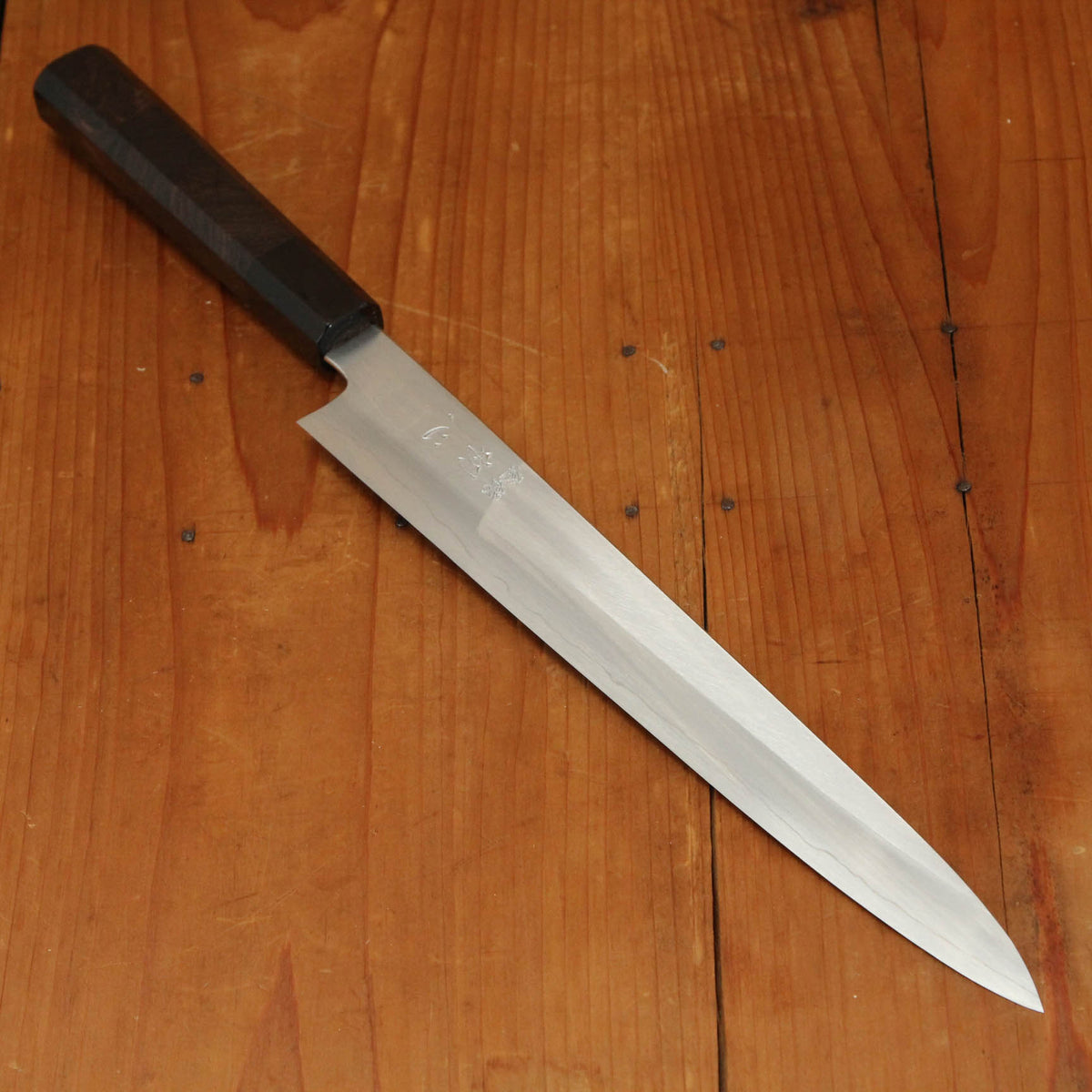
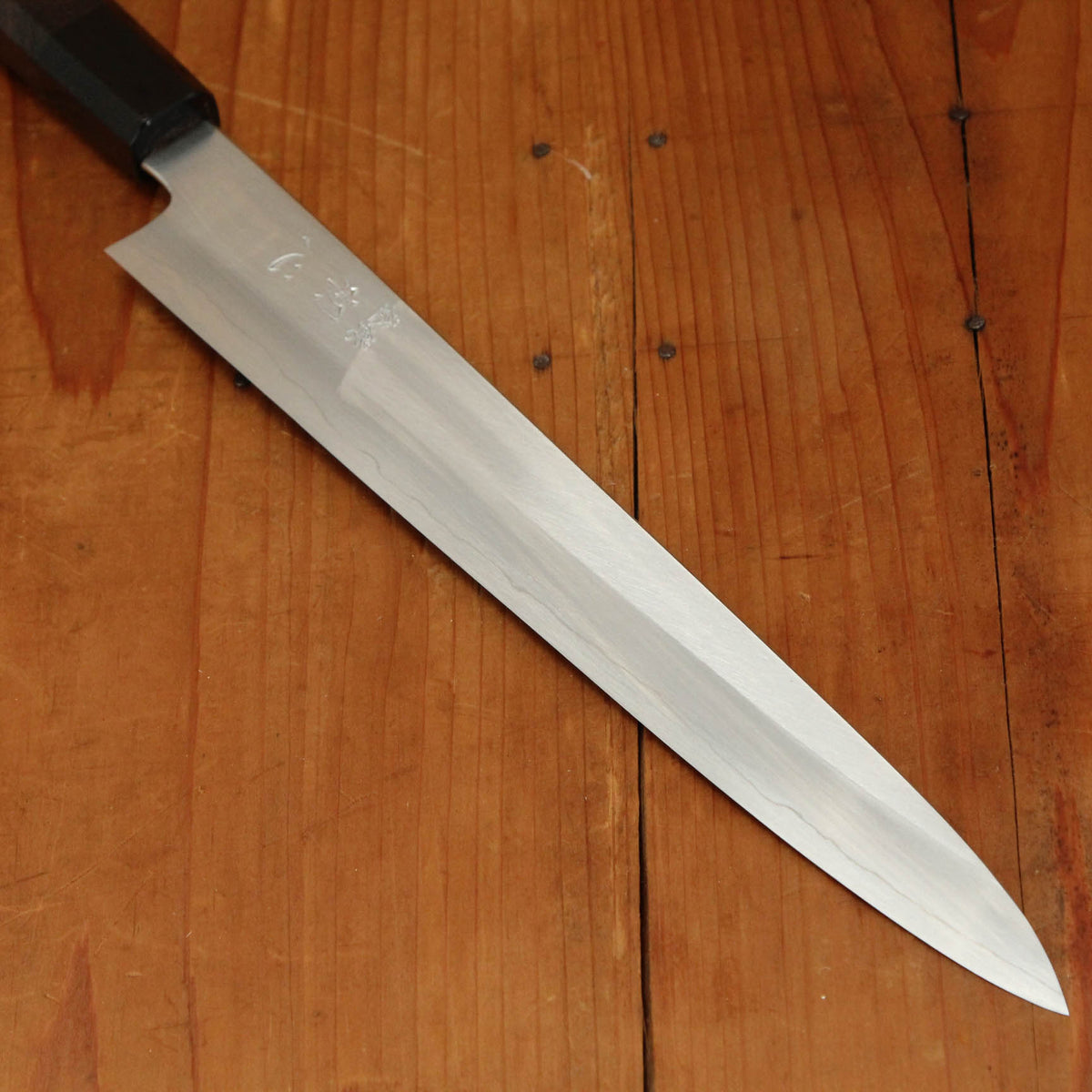
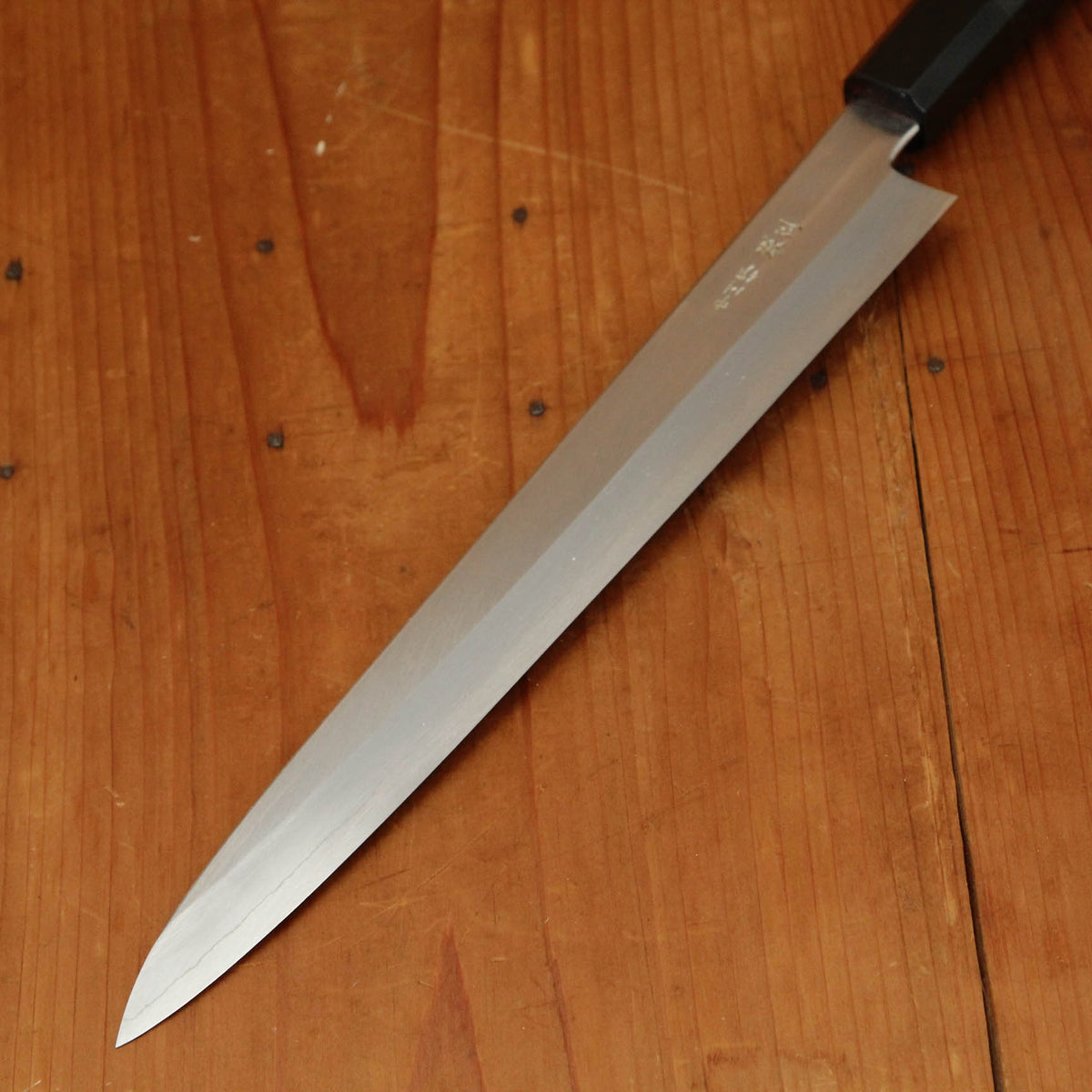
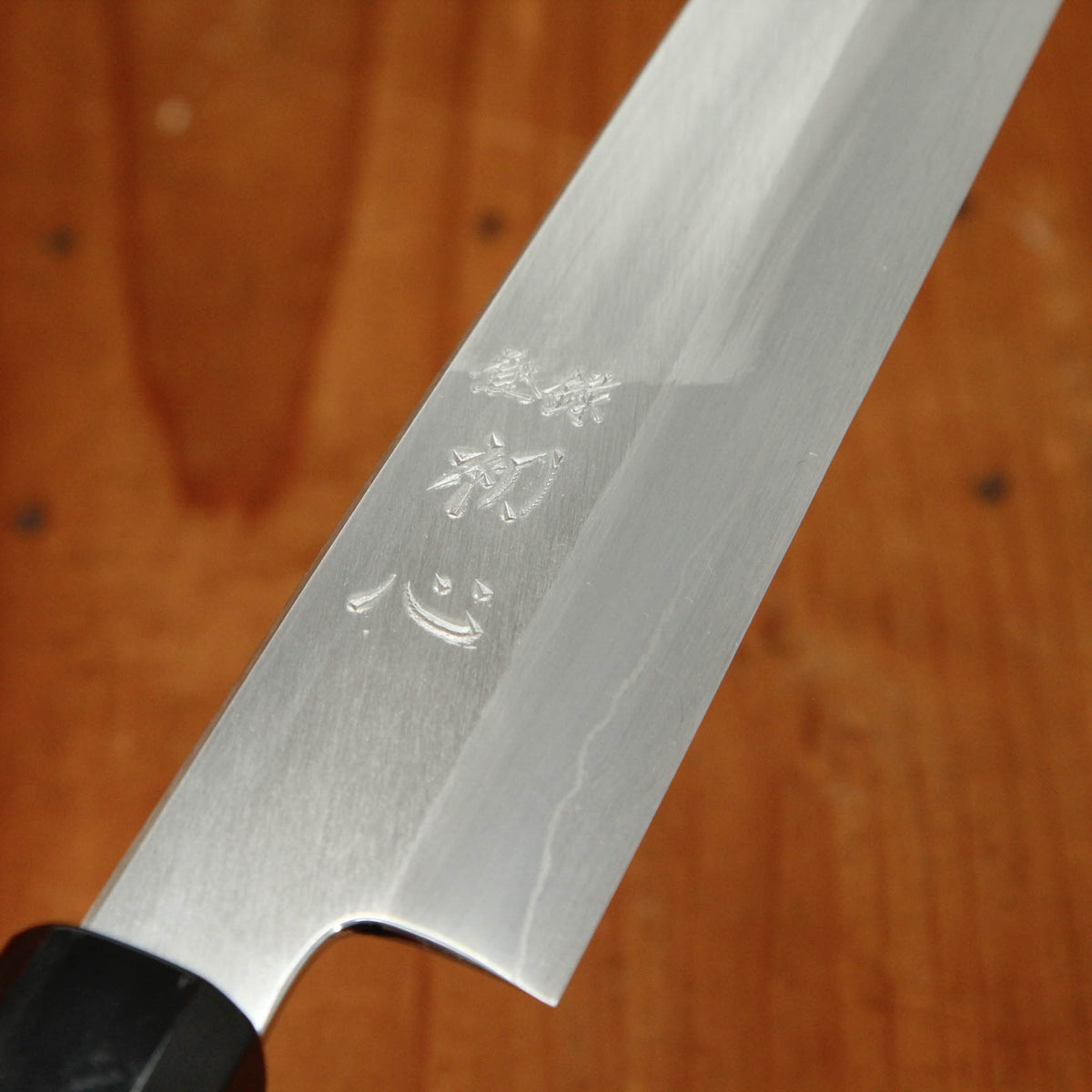
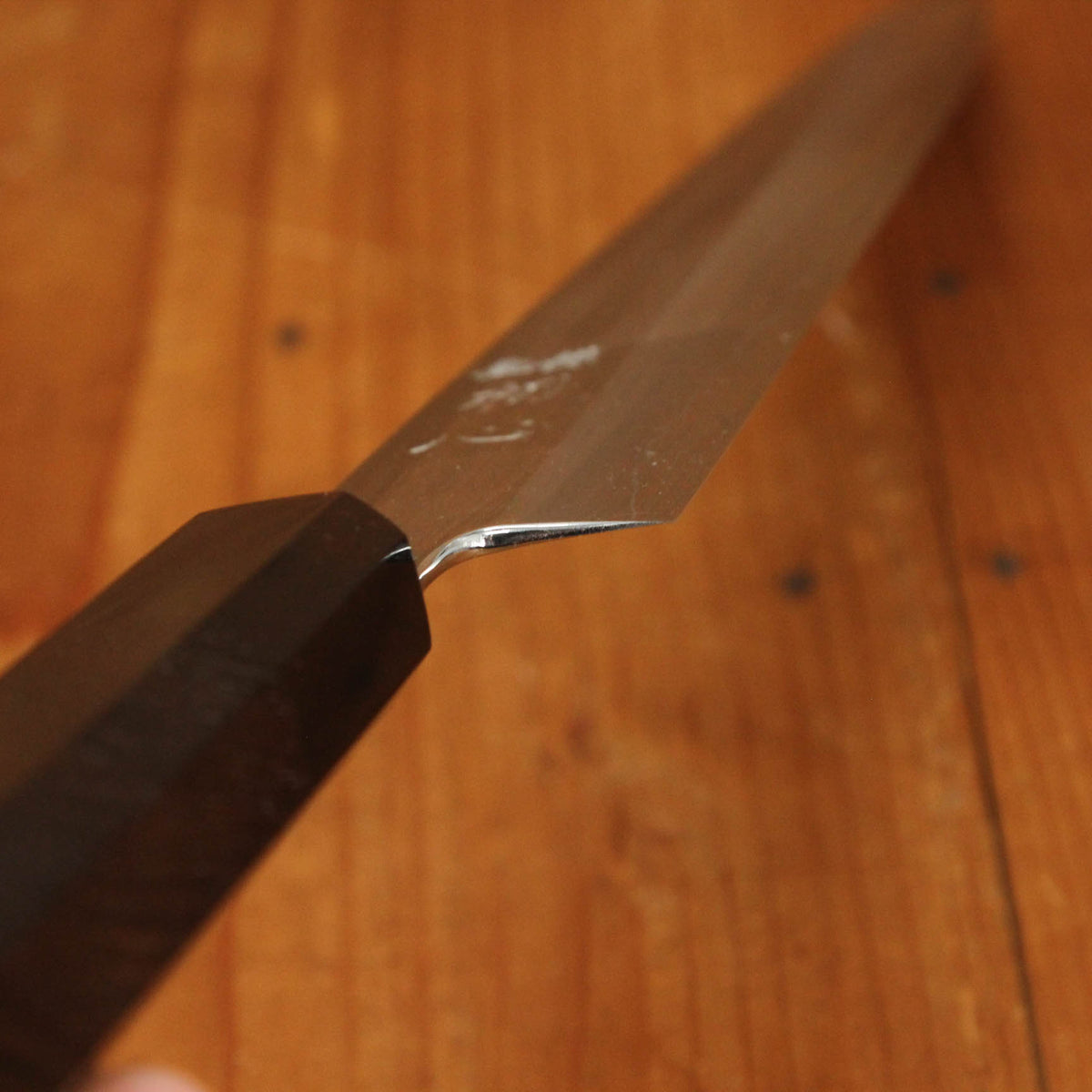
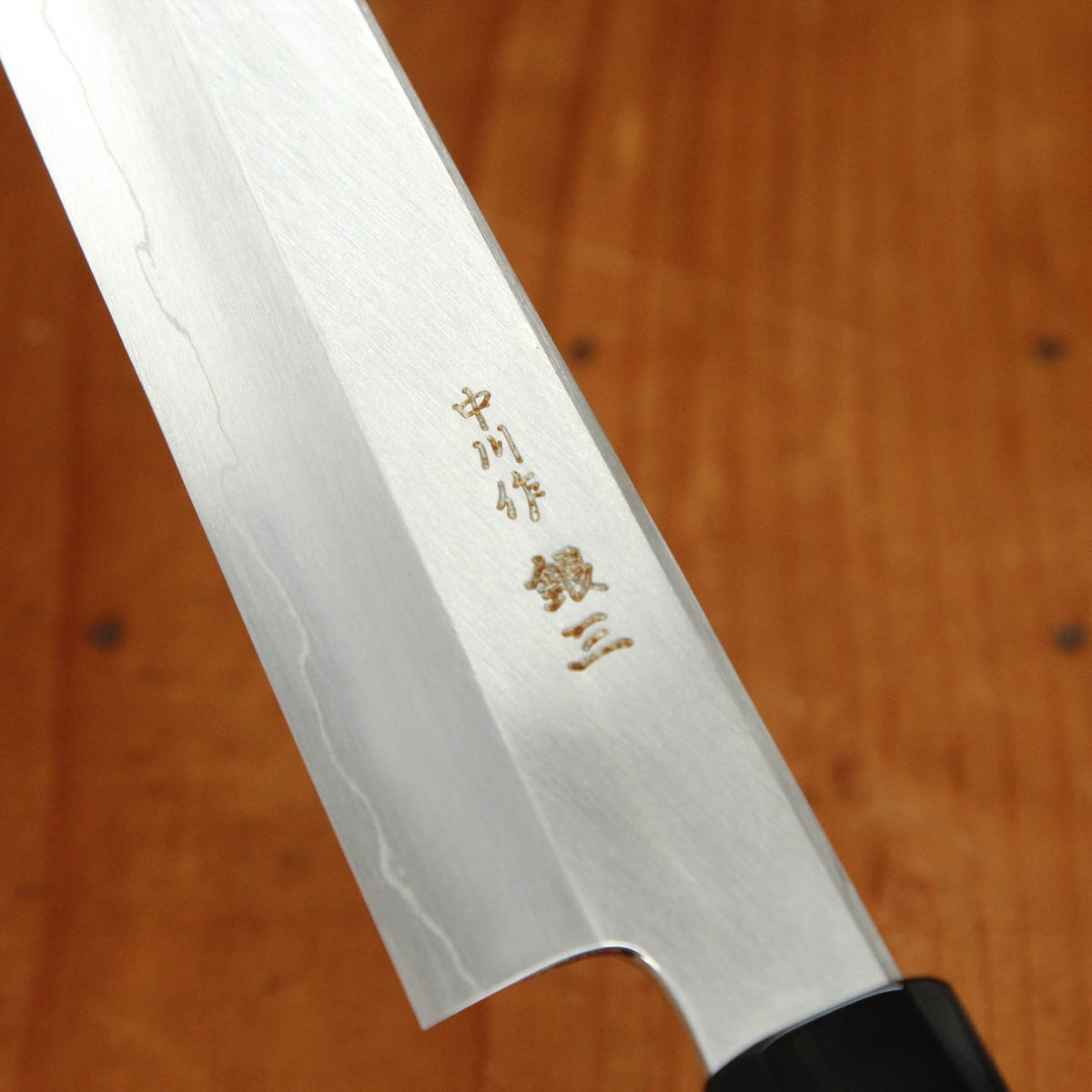
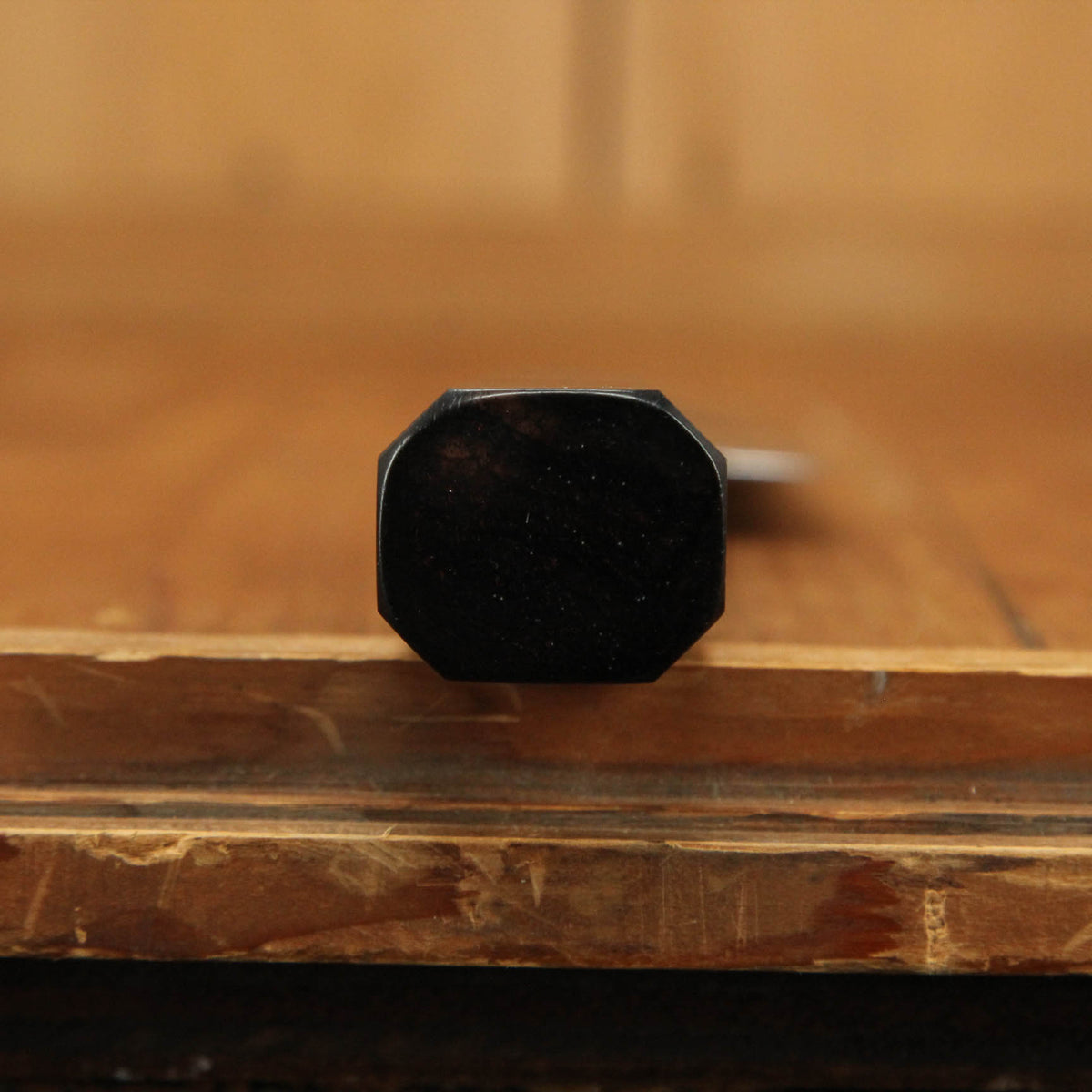
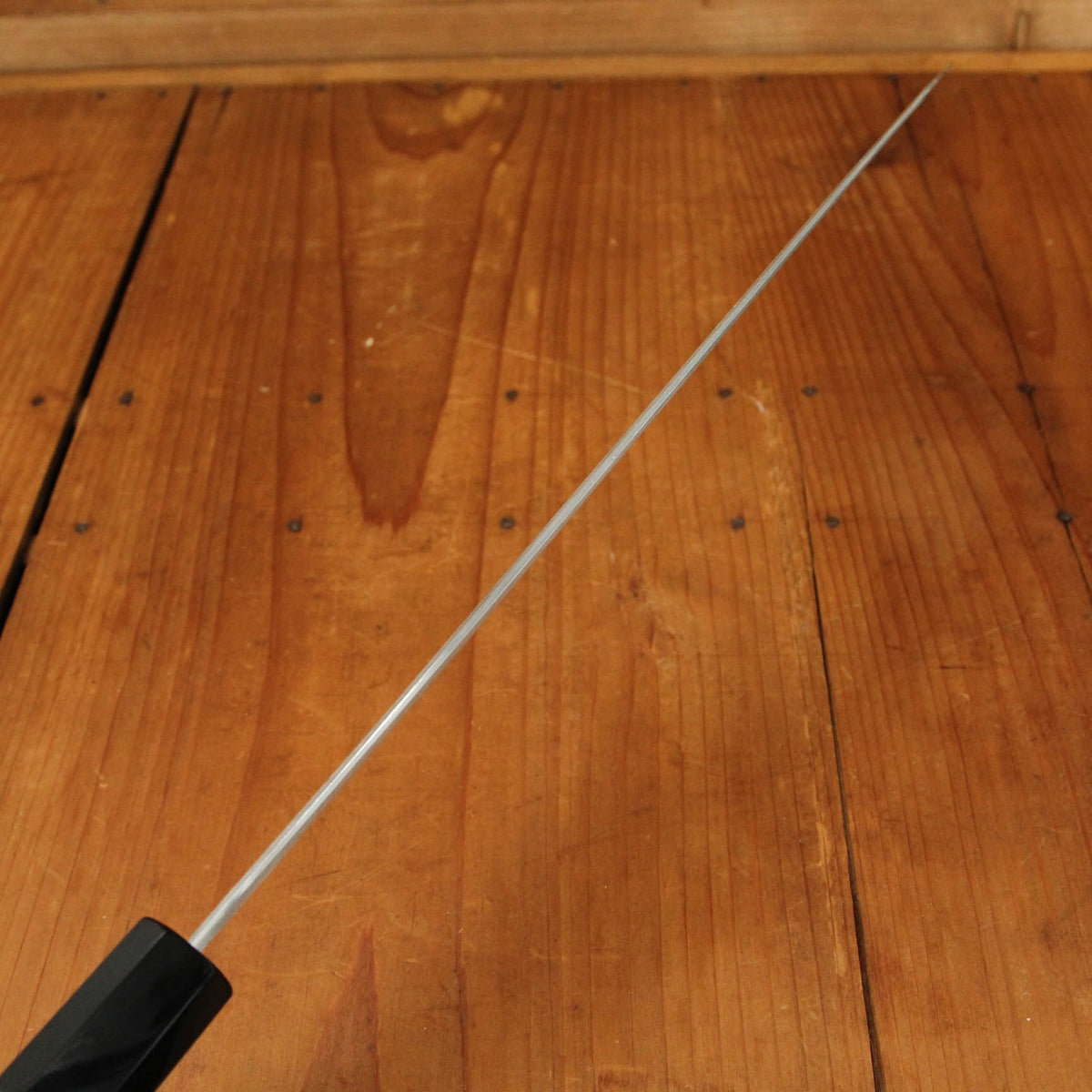
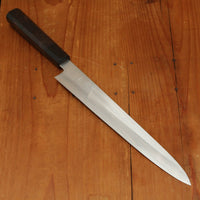
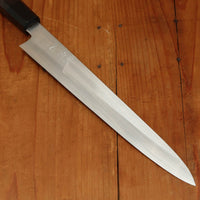
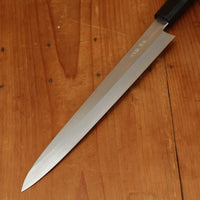
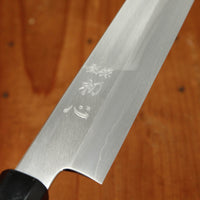
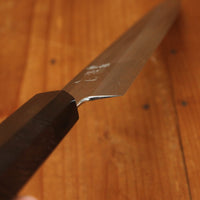
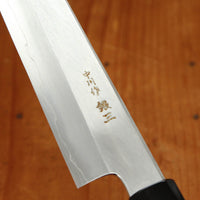
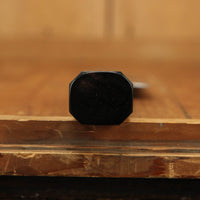
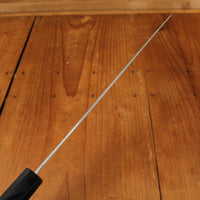
Hatsukokuro Nakagawa 270mm Sujihiki Ginsanko Ebony Black Buffalo Horn Handle
-
Regular Price
-
€474,69
-
Sale Price
-
€474,69
-
Regular Price
-
Sale
Sold Out
-
Unit Price
- /per
- Regular Price
- €474,69
- Sale Price
- €474,69
- Regular Price
- Unit Price
- /per
Nakagawa-san's knives are characterized by superb edge formation and edge life with good toughness. This is due to excellent heat control during forging and a very thorough heat treatment. His carbon steels are easy to sharpen across most steel types. Nakagawa-san is one of only a few blacksmiths in Sakai to forge Ginsanko and VG10 stainless steels. His ginsanko is one of the best we have used and sharpened, with superb edge life, toughness and edge formation.
These knives feature super fine grinding by Morihiro, known for his single and wide double bevel grinding work. Morihiro was instrumental in bringing Sakai's tradition of single bevel grinding to double bevel wa-hocho. He was the sole sharpener of the Konosuke Fujiyama line (until 2018) and also works on the Sakai Kikumori Choyo series as well as other projects from Sakai.
Do not leave wet. Hand wash & dry, no dishwasher. Hardwood-end grain or softwood long grain cutting boards are preferred; avoid bamboo and plastic cutting boards.
Brand: Hatsukokuro
Smith: Satoshi Nakagawa
Sharpener: Morihiro
Producing Area: Sakai, Osaka, Japan
Profile: Sujihiki
Size: 270mm
Steel Type: Stainless
Steel: Ginsanko
Handle: Ebony Handle Black Buffalo
Total Length: 410mm
Edge Length: 259mm
Handle to Tip Length: 272mm
Blade Height: 36mm
Thickness: 2.7mm
Handle Length: 338mm
Weight: 185grams
Hand Orientation: Ambidextrous
This is a stainless steel knife. It should be hand washed and towel dried. Habitual dishwasher use will result in degraded edge and handle. Consistent long term exposure to moisture can lead to oxidation.
Twisting, scraping and heavy use as well as use on hard and very dense objects can lead to edge damage. Using a quality wooden cutting board will keep a sharper edge for longer. Materials like glass, ceramic and bamboo should be avoided and will make the edge go dull quickly.
We recommend hand sharpening on whetstones. We have found that most Japanese knives perform best at a finer finish starting around 4000 grit. Avoid pull through sharpeners and non-water cooled mechanized sharpening. Ceramic honing rods are preferred.
Recently Viewed
About Bernal Cutlery
We are a full-service cutlery shop offering sharpening services, Japanese and Western culinary knives, vintage knives, outdoor, pocket and craft knives, cooking tools and accessories. We also offer knife skills and sharpening classes, and more.
We are proud to serve kitchen professionals, knife enthusiasts and home cooks alike. Located in the Mission District of San Francisco, California.
